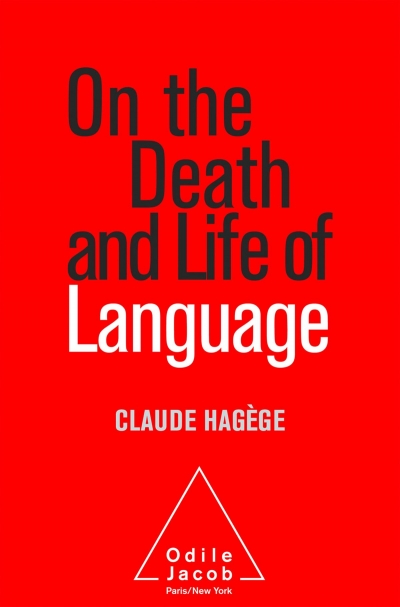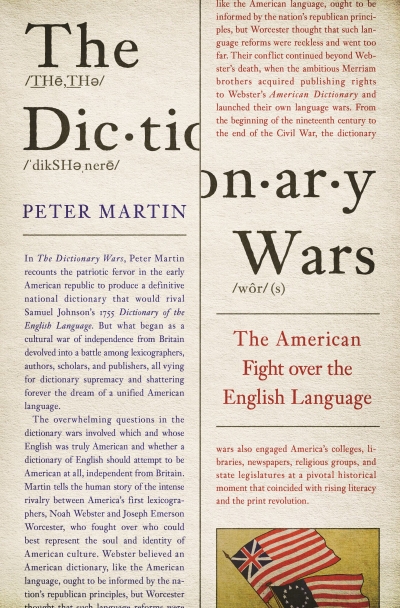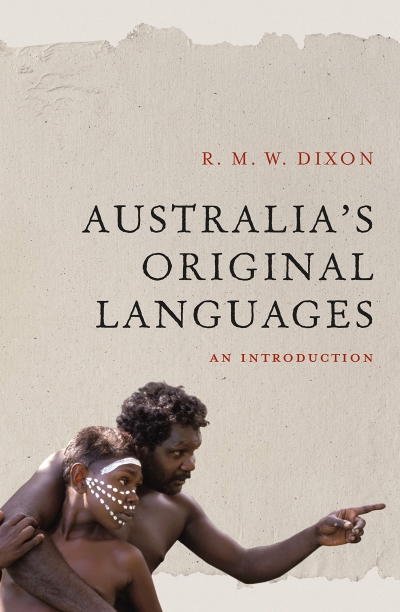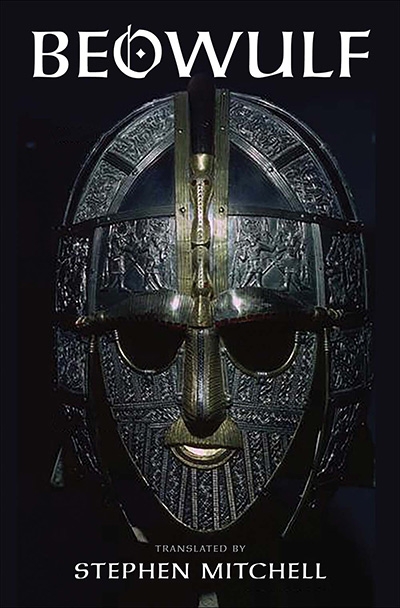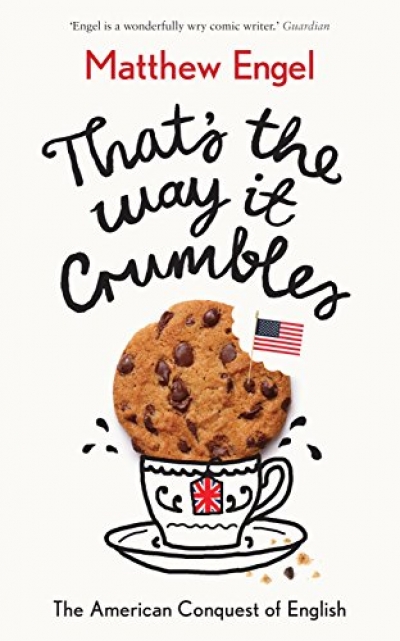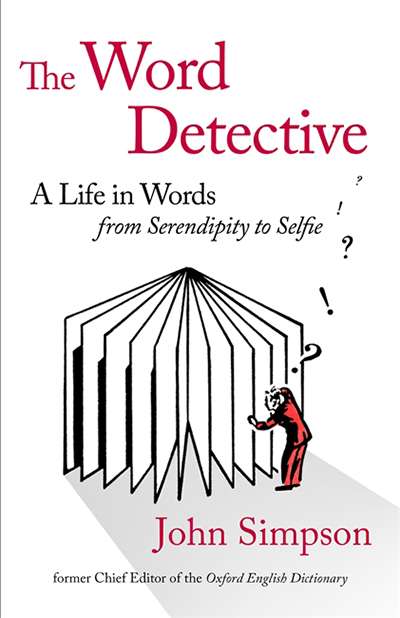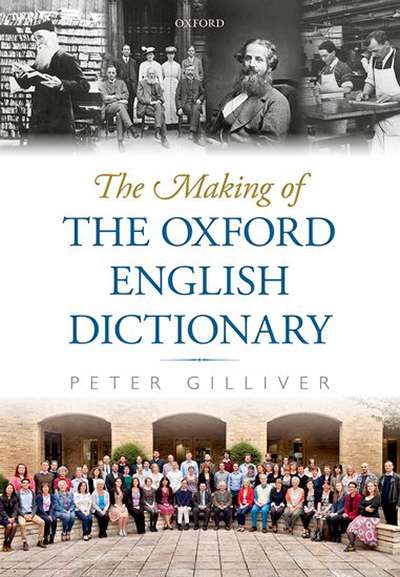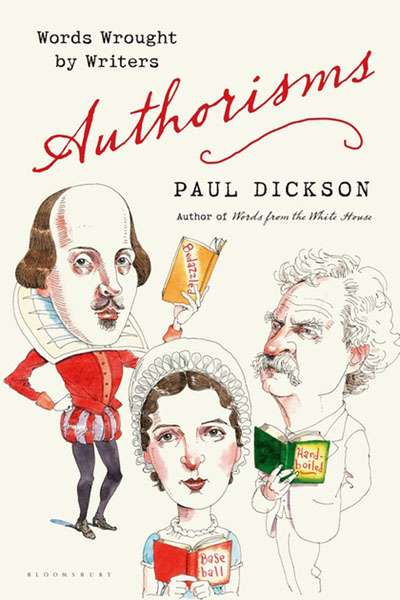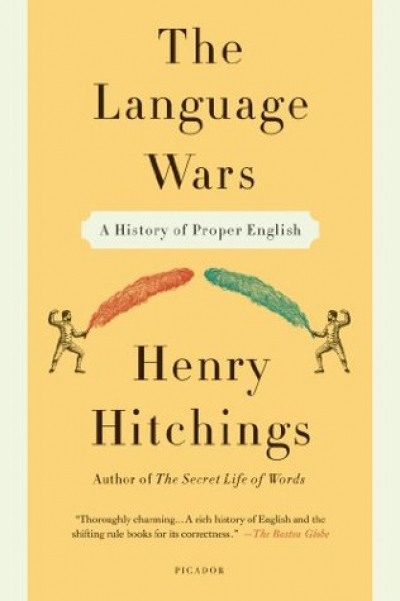Bruce Moore

Bruce Moore, editor of the second edition of the Australian National Dictionary (2016), was director of the Australian National Dictionary Centre from 1994 to 2011. His recent publications include What's Their Story: A History of Australian Words (OUP, 2010), The Australian Concise Oxford Dictionary 5th edn (OUP, 2009), Speaking Our Language: The Story of Australian English (OUP, 2008), The Australian Pocket Oxford Dictionary, 6th edn (OUP, 2007), Australian Aboriginal Words in English 2nd edn, R.M.W. Dixon, Bruce Moore, W.S. Ramson, & Mandy Thomas (OUP, 2006).
The title of this book refers to the battle for market dominance between the editors and publishers of two rival dictionaries, the one edited by Noah Webster and the other by Joseph Worcester. This battle took place largely between 1829 and 1864, and it was played out in the newspapers and by means of pamphlet warfare, with such titles as A Gross Literary Fraud Exposed, Relating to the Publication ... (read more)
Bob Dixon has researched Australian Indigenous languages since the 1960s, has constructed grammars of five languages, and has written numerous scholarly books and articles on Aboriginal languages. His latest book is directed at the general reader, and it springs from his frustration at what he sees as the persistent and continuing misunderstandings in the wider Australian community about the natur ... (read more)
The Old English Beowulf, the most important poem in English before Chaucer, was probably composed in the eighth century. The poem traces Beowulf’s three fights against the monster Grendel, Grendel’s mother, and the dragon. The dragon is defeated, but Beowulf also dies in the battle. The poem ends with an elegiac lament not just for the loss of its hero, but also for the dissolution of the soci ... (read more)
Matthew Engel has written for many years in The Guardian and the Financial Times, on topics ranging from politics to sport, and between 1993 and 2007 he produced editions of Wisden Cricketers’ Almanack. In this latest book he takes up the bat (or steps up to the plate) for British English. That’s the Way It Crumbles is a lament for the death of British English, a noble warrior battered and bam ... (read more)
What does a lexicographer do? How do you become a lexicographer? What makes a good lexicographer? What is the difference between a ‘standard’ dictionary and a dictionary based on historical principles? How do you reinvent the Oxford English Dictionary so that it has a secure place in an online modern publishing world? These are among the questions explored in John Simpson’s memoir.
John Sim ... (read more)
There have been popular accounts of the making of the Oxford English Dictionary, especially Simon Winchester’s The Surgeon of Crowthorne (1998) and The Meaning of Everything (2003), and there have been more scholarly accounts, such as Charlotte Brewer’s Treasure-House of the Language: The Living OED (2007). Peter Gilliver’s 642-page The Making of the Oxford English Dictionary is firmly ancho ... (read more)
The Australian National Dictionary – the second edition of which has just been published – is based on historical principles and modelled on the large Oxford English Dictionary. Words and meanings are traced chronologically from their first occurrence in the language through to the present (or to the time when they cease to be used); the evidence for their history appears in the form of quotat ... (read more)
American Paul Dickson has written many books on aspects of language, including Words from the White House (2013). He also claims to have invented some fifty words, although he admits that only two of these have any real chance of becoming ‘household words’: word word ‘a word that is repeated to distinguish it from a seemingly identical word or name’, as in ‘a book book to distinguish the ... (read more)
Henry Hitchings has written a number of well-received books on aspects of the English language, including Dr Johnson’s Dictionary: The Extraordinary Story of the Book That Defined the World (2005) and The Secret Life of Words: How English Became English (2008), which focuses on the numerous borrowings that English has made from other languages.
... (read more)

